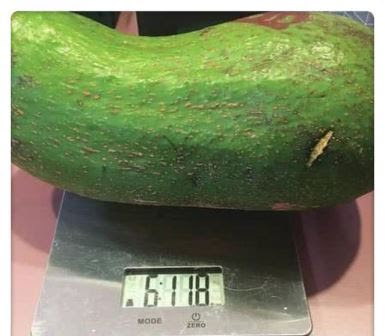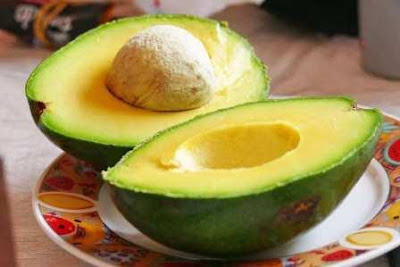Recently, a batch of fresh avocados full of four containers arrived in China from Kenya and sold to Beijing, Shanghai, Guangzhou and other cities. This is the first time that fresh avocados from Africa have been exported to China on a large scale.
David Osiani, Secretary of State for Kenya's Ministry of Industrialization, Trade and Enterprise Development, said happily that the export of fresh avocados to China is a milestone, which will increase Kenya's foreign exchange earnings, boost economic vitality, and allow local related industry players, especially avocados growers benefit.
The small avocado reflects the vigorous vitality of China-Africa agricultural cooperation in recent years. According to the Chinese Ministry of Foreign Affairs, since the Beijing Summit of the Forum on China-Africa Cooperation in 2018, 25 kinds of agricultural and food products from 14 African countries including Kenya, South Africa, Benin, and Egypt have been allowed to export to China. In recent years, the average annual growth rate of African agricultural exports to China has reached 11.4%. In 2021, Africa's agricultural exports to China will increase by 18.2% year-on-year.
Sesame seeds from Tanzania, peanuts from Senegal, fresh pears from South Africa, stevia (甜叶菊) from Rwanda... More and more African agricultural products have entered the Chinese market and are loved by Chinese consumers.
China-Africa agricultural trade can cross mountains and seas and achieve rapid growth in scale, and the policy support of China and Africa has provided important support.
At the 8th Ministerial Conference of the Forum on China-Africa Cooperation held in November last year, China announced the establishment of a "green channel" for African agricultural products to be exported to China. The General Administration of Customs of China has actively implemented and formulated practical access facilitation measures: First, give priority to the agricultural product access applications submitted by African countries, immediately start risk analysis after receiving relevant technical information, and speed up the promotion of quarantine access Second, for some agricultural products from the same country with similar processing techniques, or the same kind of agricultural products from different countries, under the premise of controllable risks, the risk assessment will be combined to speed up the access process; Producers of agricultural products approved to export to China will facilitate registration, adopt flexible methods such as video inspection or document review, and speed up evaluation and registration.
The efforts of Chinese and African companies are also indispensable. Take avocado as an example, in order to realize the large-scale export of Kenyan fresh avocados to China, the main partner of the Kenyan government’s avocado project, Shanghai Guorui Technology Information Co., Ltd., introduced fumigation technology from the Netherlands, and worked with agricultural experts to formulate the entire fumigation process standard. Introduce standards to Kenya. The "Report on Chinese Enterprises Investing in Africa (2022) - China-Africa Enterprise Cooperation from the Perspective of Supply Chain" recently released by the China-Africa Private Chamber of Commerce pointed out that in recent years, Chinese enterprises have been committed to investing in the construction of supply chains in Africa, and are helping Africa to cope with supply chain challenges. role is growing.
The vigorous development of China-Africa agricultural cooperation has benefited from the continuous deepening of China-Africa cooperation over the years. Driven by China-Africa cooperation, Africa's infrastructure has improved significantly. Since 2000, Chinese companies have helped African countries to add and upgrade more than 10,000 kilometers of railways, nearly 100,000 kilometers of highways, nearly 1,000 bridges, nearly 100 ports, and network services covering nearly 700 million user terminals; , China-Africa e-commerce and other new trade formats are booming. Some China-Africa cross-border e-commerce platforms have now built thousands of terminal logistics and distribution points in Africa... These achievements and measures have helped African agricultural products enter the Chinese market and Chinese goods directly to Africa. Community provides more opportunities.
According to the Chinese Ministry of Foreign Affairs, China will also hold the China-Africa Sanitary and Phytosanitary Cooperation Forum to support and facilitate the entry of more high-quality and characteristic African agricultural and food products into the Chinese market. Undoubtedly, with the joint efforts of both sides, the prospect of China-Africa agricultural cooperation will be even broader.








